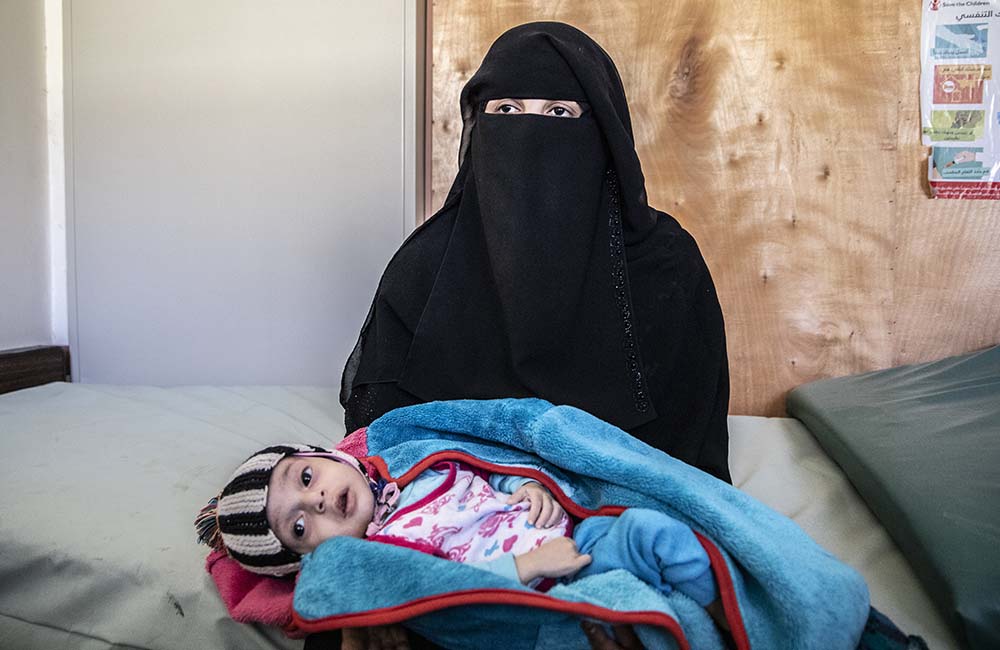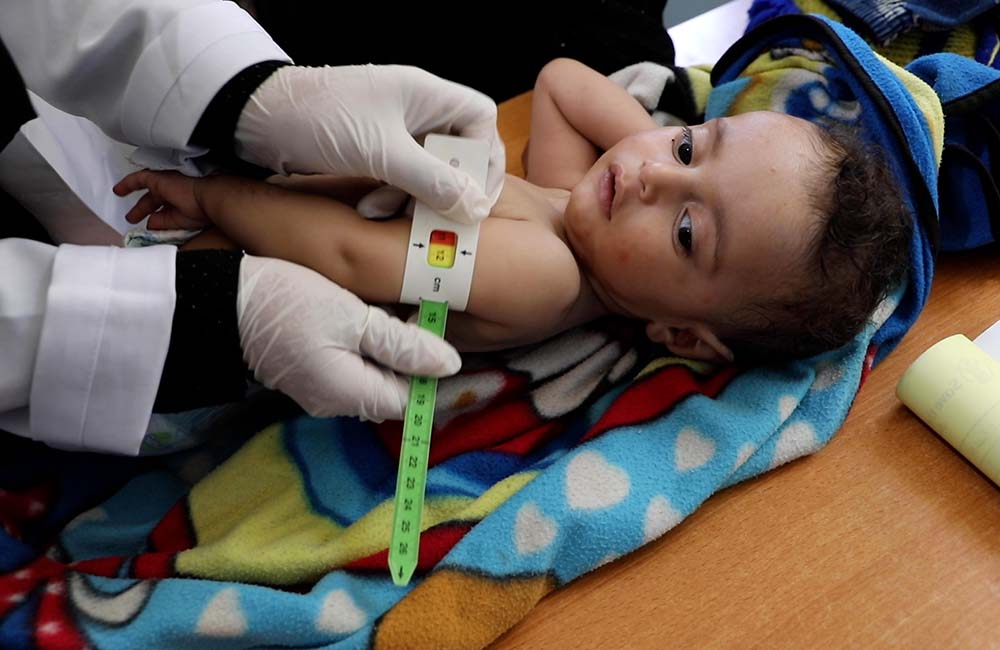Reaching children caught up in war with the essentials they need to survive
14-month-old Amir* loves playing with his toys. He turns over and stands up. He eats his favourite foods - potatoes, bananas and eggs. He likes listening to songs such as “Dad brought me a balloon” and “Go to sleep”.
These are all behaviours you would expect from a child his age. But barely six months ago, Amir was so tiny you could hold his hand with just one finger. So weak from vomiting and sick with diarrhoea, he was suffering severe acute malnutrition - just one of the many children in Yemen going hungry due to the ongoing conflict.

Fatima holds her son Amir, who was listless, weak and tiny for his age.
Photo: Anna Pantelia / Save the Children
With the help of donors, Save the Children supported Amir to get the urgent medical treatment he so desperately needed. He was discharged after five days in the hospital, and a volunteer continued to visit him at home to take his measurements and provide him with nutritious food.
Fatima, his mum, expresses her relief, “My son’s situation is getting better than what it used to be. They provided him with medicine and nutritious food. There is a progress in his case.”
“I felt so comfortable when my son started to receive treatment. I hope that my son will be healthy and starts to walk in the future,” she continues.

Health care workers measure Amir’s arm circumference
with a MUAC band to monitor his recovery from acute malnutrition.
Photo: Hadil Saeed/Save the Children
The silent killer in conflict - malnutrition
Amir’s experience with malnutrition was brought about by simply not having enough nutritious food.
In Yemen, where Amir lives with his mother, the war is now entering its eighth year and is impacting families’ sources of food, causing hunger, with tragic consequences for children. As the violence of war gets closer to their homes, families are often forced to flee to remote regions where food, water and healthcare are scarce or inaccessible.